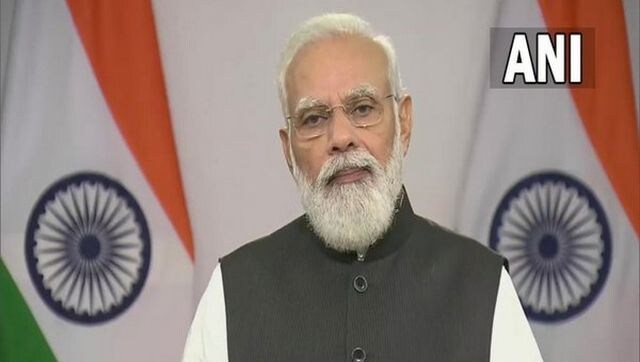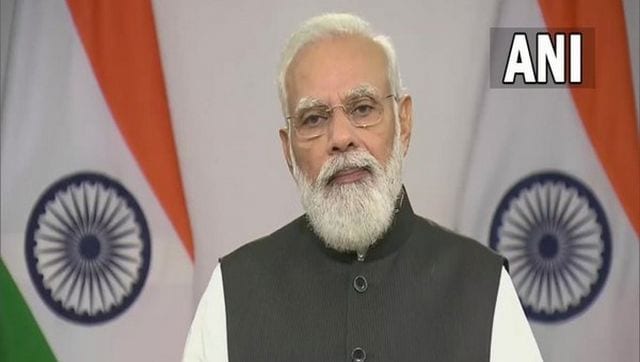Why Prime Minister Narendra Modi should have avoided repealing the three farm laws.

File image of Prime Minister Narendra Modi. ANI
It’s time to admit that we are in the grips of Nehru 2.0. If Nehru sacrificed national interest for some esoteric Fabian Idealism, then this government seems to be sacrificing for perceived electoral gains. The farm law debacle is a distillate of mishandling at multiple levels — be it media, be it messaging, be it the ability to control crowds, be it the ability to prosecute rioters, be it the ability to understand and surgically apply carrots and sticks, be it the ability to manage the judiciary.
We were told passing the farm laws was a “masterstroke”. We were told letting rioters run amok was a “masterstroke”. We were told that not doing anything about the severe inconvenience to the average citizen as a result of road blockages was a “masterstroke”. And now we’re told that repealing the three laws is a “masterstroke”.
In his Friday speech, the Prime Minister claimed he introduced the three laws for the farmers’ welfare but would repeal them for the nation’s welfare. In reality, the move seems to have condemned us to another three years of street protests and the high likelihood of a renewed insurgency in Punjab. The only people who have won are the landlord class of Punjab — the same class that is believed to have provided the bulk of manpower and funds and ideology of the Khalistan movement.
Appeasement is a lesson every Indian should learn, but never do. The Allies learnt to their own peril that satiating Hitler led him to become more rapacious. At any rate they stopped appeasing him in 1939 but paid a heavier price in lives than they would have had they drawn a red line way back on 30 January 1933. For all of Nehru’s alleged “mastery of history”, he repeated the same mistake with China — normalising China’s rapaciousness, saying “giants need to be treated like giants”. India paid for that mistake dearly in lives, territory, treasure, prestige and credibility.
Today what Modi is doing is hardly any different. Giving first-time Kashmiri stone-pelters government jobs was an act of commission by the PDP, but acquiescing to it was an act of omission by the BJP. Not cracking down on the Seelampur riots led to the Shaheen Bagh protests which then became the Delhi riots — all these were acts of incompetent omission, making the protests tougher to control as time progressed.
The exact same thing happened with the farm laws: It started with uprooting telephone poles and blocking roads, the government didn’t protect the people. Then, emboldened by government inaction, they started riots in Delhi, desecrated the National Flag on Republic Day and beat up police. Government supporters were hailing this pusillanimity as a “masterstroke”. Finally, like with Article 370 and CAA/NRC, even this legislative prerogative was ceded to the judiciary. Here, I’m not even going to talk about the abandonment of its own party workers in West Bengal and Kerala.
Also read: Narendra Modi drinks farm law repeal poison for unity narrative
Modi’s diehard supporters are saying that this U-turn has robbed the Opposition of a campaign platform and made the entire “farmer movement” redundant. What this policy reversal failed to consider was who exactly was benefiting from the U-turn. Everybody with even a rudimentary knowledge of Punjab knows it to be in the stranglehold of one particular faction of Sikhs who are aligned with Jat Sikhs who in turn have an absolute control of both economy and politics in the state.
Having skipped the industrialisation of the rest of the country that happened in the 1990s thanks to the insurgency, Punjab has remained a deeply feudal society. Consequently, being a Nirankari, a Ravidasiya, a Dera, each sect associated with the interests of non-Jat Sikhs remains a fraught proposition. The farm laws, if they had played out, represented a serious threat to that hierarchy. What is worse is that these same Jat Sikhs also provided much of the fuel for the Khalistan movement — in some districts as many as 60 per cent of the local terrorists reportedly came from this one community. At one shot Modi’s capitulation has not only ended any chance of Punjab social engineering its way out of problems, it has essentially made the sharks taste blood.
This has to be added to a pattern some of us in the security community had been studying over the last decade — where radical Sikh elements were capturing power in Canada’s Labour Party, with zero interest or concern from our embassy there; where funding flows had reversed from ISI to Khalistanis to Khalistanis now funding the ISI; from a slow but sure penetration of the same patterns to the British Sikh community; from the seemingly miraculous opening of the Kartarpur Corridor to some elements of the Sikh community supporting the Shaheen Bagh protests and receiving reciprocal support for the farm protests. The next, inevitable step is a slow but steady revival of the insurgency there.
Moreover, every single “civil society” organisation now knows that the route to success is not through students, but through hourly rental farmers. Now every single cause will hire them and come out in large numbers, leading to greater urban strife and blockages, secure in the knowledge that the government will not act against them and cave in if they create enough nuisance.
Some so-called political analysts are now telling us that this decision was necessary due to the “security situation”, not realising that this is in fact a damning indictment of the government’s mismanagement. Modi’s decision to repeal the three farm laws has condemned us to civil strife for the rest of his tenure.
The writer is a Senior Fellow at the Institute of Peace and Conflict Studies. The views expressed are personal.
Also read: Is Prime Minister Narendra Modi’s retreat on farm laws cowardice or calculation?







More News
Number of tests by 2 private labs at Mohalla clinics sees 80% dip since ACB report | India News – Times of India
Adhir Chowdhury Reveals Why Congress Attacks Adani-Ambani; BJP Hits Back
Murder convict gets furlough, victim’s kin move Supreme Court | India News – Times of India